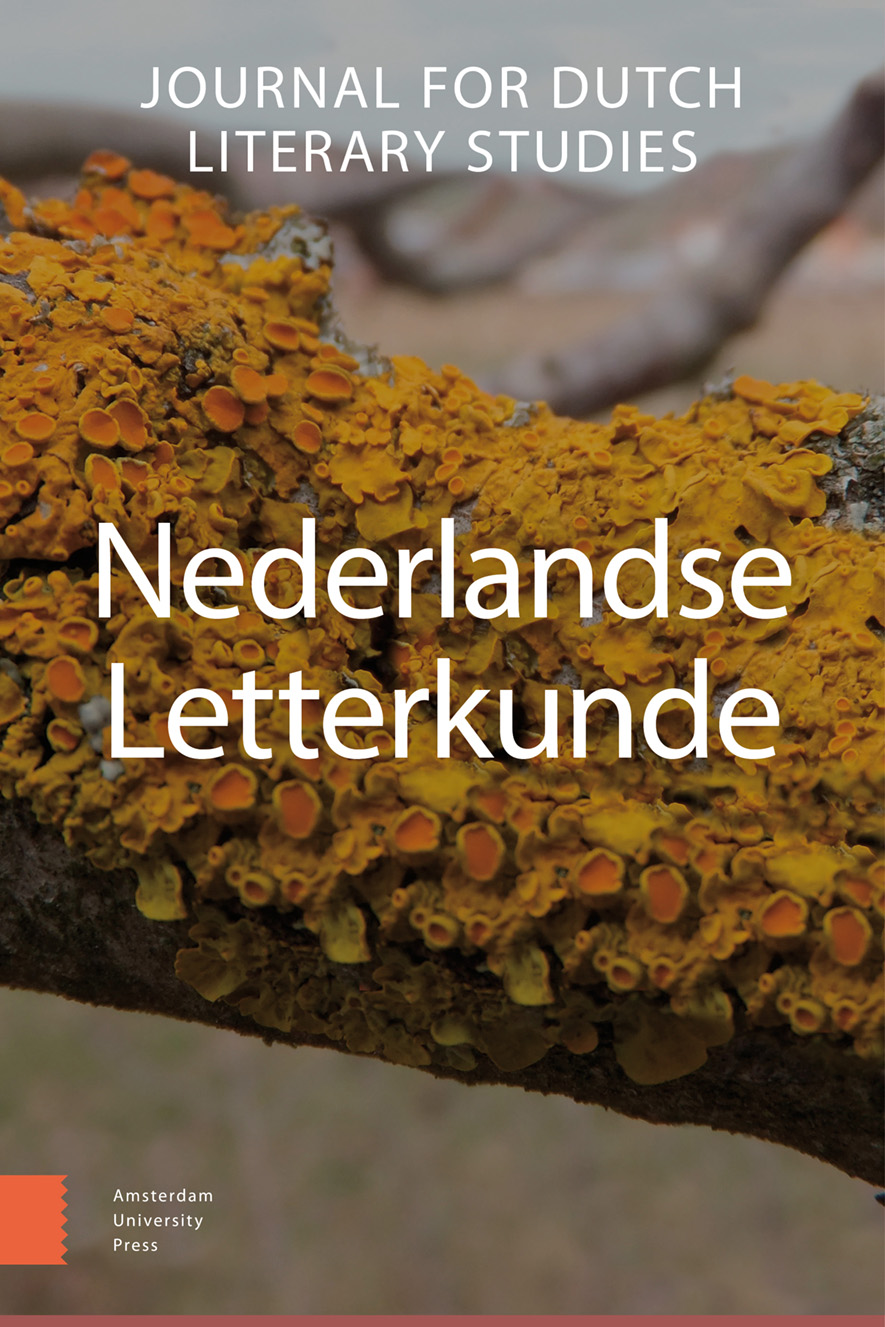- Home
- A-Z Publications
- Nederlandse Letterkunde
- Previous Issues
- Volume 24, Issue 3, 2019
Nederlandse Letterkunde - Volume 24, Issue 3, 2019
Volume 24, Issue 3, 2019
Language:
English
-
-
oa ‘Vrouwen baren het rijm’
More LessAbstract ‘Women bear the rhyme’ Prudens van Duyse (1804-1859) as mediator of female authors The Flemish poet, Prudens van Duyse (1804-1859), was a leading literary figure in the first half of the nineteenth century. In addition to his work as a writer, he also acted as a cultural mediator and it is striking that, in his work, he paid exceptional attention to female authors. This article examines, on the one hand, the relationshi Read More
-
-
-
oa De reisbrieven van R.C. Bakhuizen van den Brink, geschreven gedurende zijn ‘ballingschap’, 1844-1851
More LessAbstract R.C. Bakhuizen van den Brink’s travel letters, written during his ‘exile’, 1844-1851 In the years 1844-1851, during his journey along libraries and archives in Germany and Austria, the young scholar and later writer and archivist Bakhuizen van den Brink (1810-1865) wrote extensive love letters to Julie Simon, who he had left behind in Liège. Expressing the emotions aroused by his exile from the Netherlands and the separ Read More
-
-
-
oa Grenscontroles in het Nederlandse literaire veld van het interbellum
More LessAuthors: Janka Wagner & Ralf GrüttemeierAbstract Border control in the Dutch literary field between the wars. The literary critic A.M. de Jong and Nieuwe Zakelijkheid Powerful critics around the journal Forum (1932-1935) like Hendrik Marsman and Menno ter Braak branded authors of Nieuwe Zakelijkheid to be no more than reporters and imitating followers – as opposed to ‘real’ writers of literature. However, from a field theoretical perspective, what seems to be a criti Read More
-
-
-
oa Een schroothoop als gezamenlijk project
More LessAbstract A Scrapheap as Joint Enterprise: Intercultural Empathy in Tom Lanoye’s Het derde huwelijk So far, within the field of Dutch studies few have employed empathy to study texts on contemporary multiculturalism. Studying empathy as a cognitive and an affective phenomenon, this article combines insights from cognitive, affective and postcolonial research to establish several guidelines on how empathy functions b Read More
-
Volumes & issues
Most Read This Month
Article
content/journals/13845829
Journal
10
5
false
en


